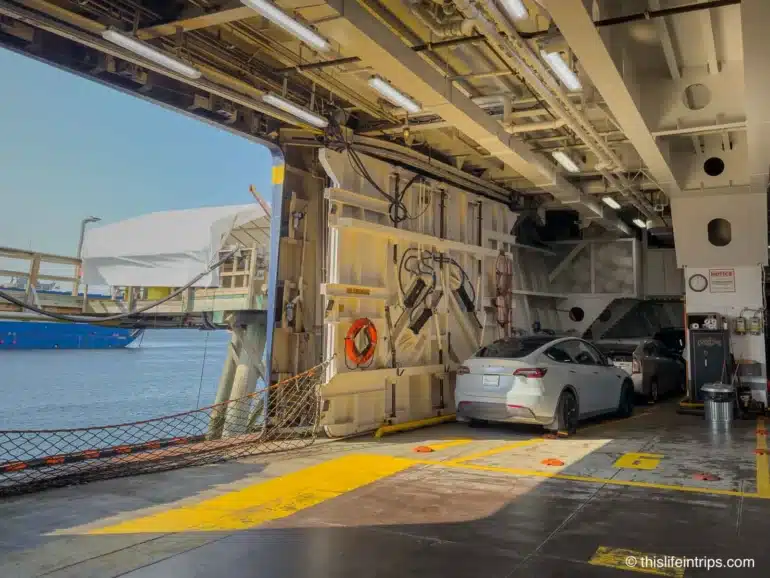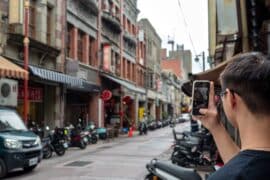Moving abroad. The thought sits heavy at first. A big change, one that pulls at both the heart and the schedule. There’s paperwork, boxes stacked high, lists written and rewritten. Then there’s the other side: a new city, new food, new sounds outside the window. It’s not only relocation. It’s a journey, long before you ever put down roots again.
The Beginning Before the Beginning
People picture relocation as a simple path: pack, fly, land, unpack. But it rarely works that way. The reality is more layered. Documents need stamping. Embassies require appointments. Visas sometimes call for flights to nearby countries just to get approvals. The process itself nudges you to move around, to start traveling before the official “move day” ever arrives.
That’s where the journey begins. Not in the new apartment. Not when the internet gets installed. But in the in-between moments: the consulate visit that turns into a coffee in a new neighborhood, the quick side trip you add while waiting for a passport to be processed.
And often, behind this personal move, there’s the business side waiting quietly. For those building careers or setting up companies abroad, structures like offshore company formation are part of the luggage, too. Not visible, but essential. Just as you carry clothes in a suitcase, you carry documents that secure your financial flexibility once you’ve arrived. It’s not the romantic side of travel, but it is part of the bigger picture. The journey isn’t only emotional: it’s also practical.
Turning Relocation Into a Series of Journeys
The big move feels less overwhelming when it’s broken into smaller trips. Many people take advantage of the transition to wander a little. A stop in a neighboring country. A short stay in a coastal town near the final destination. A week in a city where friends already live.
Each leg of the trip works like a soft landing. Instead of going straight from old home to new home, you pass through places that teach you small lessons. How public transport works differently. How food tastes shift. Even how people greet each other. By the time you reach the final destination, you’ve already adjusted your rhythm.
That kind of travel also turns stress into story. Instead of saying, “The move was chaotic,” you get to say, “We stopped in Lisbon on the way, and that small detour gave us energy for what came next.” Travel smooths the edges of relocation.
Building Comfort in Motion
Life in motion teaches things you can’t learn at home. A suitcase becomes enough. Meals are improvised but satisfying. Maps become friends. And conversations with strangers teach shortcuts that apps can’t.
All of this turns into practice for life abroad. Because once you finally settle in, the new city will ask the same of you. You’ll improvise while finding grocery stores, you’ll make do with fewer belongings until shipments arrive, you’ll ask locals for advice when bureaucracy confuses you. The weeks of travel before arrival act as training for the bigger adjustment.
That training matters. It builds patience. It builds confidence. It reminds you that being a little lost isn’t a disaster. It’s an opening.
The Emotional Side of Travel Before Relocation
Relocation isn’t only practical. There’s the heart to manage, too. Leaving family, saying goodbye to streets that feel familiar, even selling or donating objects tied to memories. Those moments sting.
Travel in the middle helps soften it. Airports and train stations are filled with people also in motion. You’re not the only one crossing borders, carrying both hope and doubt. That shared energy makes the personal shift feel less isolating.
And along the way, there are small joys that keep you anchored: discovering a dish you’ve never tasted before, stumbling into a festival in a city you hadn’t planned to explore, picking up a local phrase that stays with you. These experiences lighten the emotional luggage.
Making Travel Part of the Plan
The easiest way to bring travel into relocation is to plan it in, not treat it as an afterthought. Some people schedule intentional stops between their old home and new one. Others set aside weekends during the paperwork phase to explore nearby countries.
- A week-long road trip before the final flight
- Slow travel by train instead of rushing by plane
- Staying in small towns along the way rather than big capital cities
- Building in cultural stops: museums, local events, even markets
These choices turn relocation into a journey that feeds energy instead of draining it.
Travel as the Soft Start of Integration
One overlooked part of relocation: culture shock. Even the smallest differences can feel sharp when you first arrive. Travel beforehand acts as a buffer. By the time you officially move, you’ve already tasted the food, heard the language, observed the rhythm of daily life in nearby regions. That makes integration smoother.
It also gives you stories to share once you arrive. Conversations with new neighbors often start with: “We stopped in Prague on the way” or “We spent a week in Andalusia before arriving.” Those small anecdotes create instant connection.
Balancing Business and Personal Transition
For those moving not just for lifestyle, but also for business, travel can double as preparation. While on the road, many take time to research regional hubs, meet potential partners, or scout future office spaces. A coffee in a city along the route can turn into a valuable connection.
At the same time, paperwork—financial and legal—fits quietly into this stage. Setting up the right structures before arrival means the personal transition doesn’t get tangled with unexpected financial stress. Organizing documents, securing accounts, and arranging the frameworks you’ll need later gives space to enjoy the actual move. Travel helps because it creates pockets of time: hours on trains, days between embassy visits, evenings in hotels. Those hours often turn into the quiet work of planning.
A Shift in Perspective
There’s one final gift travel offers during relocation: perspective. At home, the move might feel overwhelming. Too many tasks, too much uncertainty. But once you’re on the road, the size of the world humbles those worries. You see landscapes bigger than your stress, cultures richer than your fears.
By the time you arrive at your new home, the move doesn’t feel like a burden anymore. It feels like a chapter in a much larger story.
Arrival, Not an End But a Start
Landing in a new country is often seen as the final point. But with travel woven into the process, it feels more like a continuation. You arrive not drained, but already in rhythm. The stories you’ve collected along the way soften the strangeness of the first night in a new apartment. The journey gives the arrival texture.
Relocation doesn’t have to be a straight leap into the unknown. It can be a layered experience. A collection of small trips, cultural pauses, and moments that shape the way you begin again.
And that’s the real point: relocation abroad isn’t only about getting from point A to point B. It’s about letting the journey itself prepare you, steady you, and remind you why you chose to make the move in the first place.
What say you?
Thoughts on
Relocating Abroad and Making Travel Part of the Journey?
Let’s hear it!








